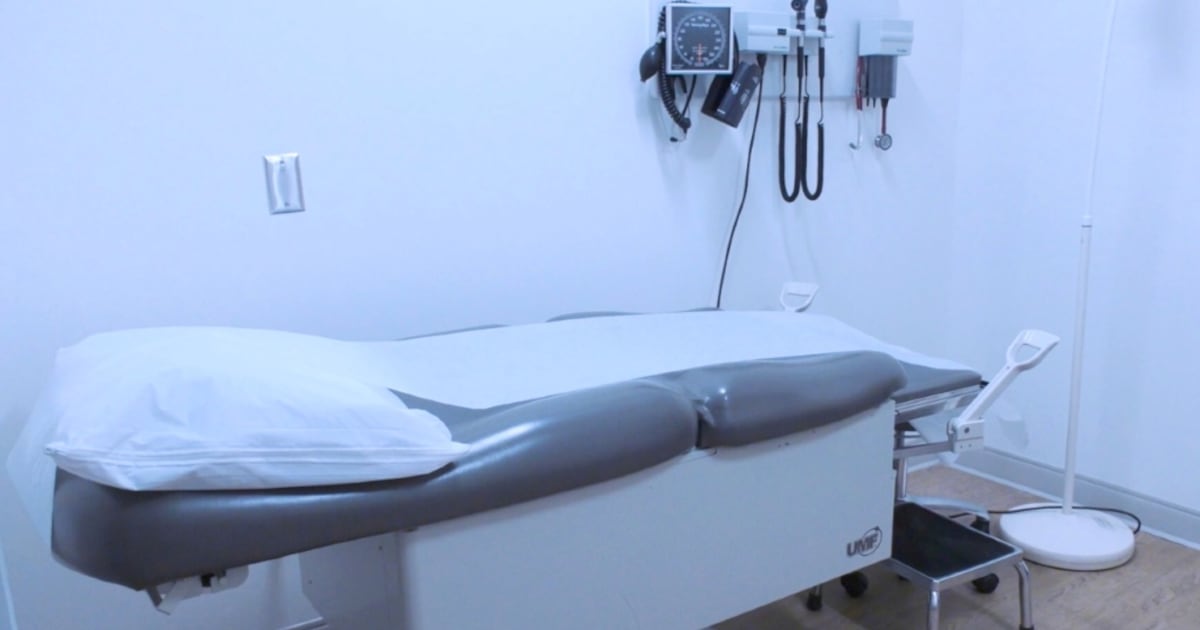Health
Windsor-Essex Faces Rising Sexually Transmitted Infections Crisis

Health authorities in Windsor-Essex are raising alarms over a significant increase in sexually transmitted and blood-borne infections (STBBIs) in the region. The Windsor-Essex County Health Unit (WECHU) reported a total of 1,464 STBBI cases in 2024, marking a 15 percent rise from previous years. As of September 19, 2025, 853 cases have already been documented, indicating a concerning trend that health officials are closely monitoring.
Dr. Medhi Aloosh, the Medical Officer of Health for WECHU, attributes some of this rise to changes in sexual behavior among residents. “We see more syphilis among heterosexual individuals and women, leading to congenital cases of syphilis. This reflects shifting behaviors and increased risk,” he stated. The health unit’s report highlights a growing prevalence of chlamydia and gonorrhea, which remain the most frequently reported STBBIs.
Syphilis and hepatitis C also rank among the top ten infectious diseases of public health significance in Windsor-Essex for 2025. Common risk factors for these infections include unprotected sex, multiple or anonymous sexual partners, and substance use. Dr. Aloosh emphasized the importance of awareness, stating, “Anyone can contract a sexually transmitted disease. It is crucial for everyone to understand that this can affect any age group—young, old, or wealthy.”
The report indicates that individuals aged 20-44 represent the highest incidence group for chlamydia and gonorrhea. “The surge in anonymous sex, often facilitated by apps, has led to higher risks associated with multiple partners,” Dr. Aloosh explained.
Under the Health Protection and Promotion Act, health units like WECHU are mandated to monitor and report diseases of public health significance, which includes STBBIs such as chlamydia, gonorrhea, syphilis, HIV, and hepatitis B and C. The health unit noted that certain populations in Windsor-Essex are disproportionately affected by these infections due to intersecting social, behavioral, and structural vulnerabilities.
As health officials continue to address this public health challenge, they urge community members to engage in safer sexual practices and prioritize regular health screenings. The rising rates of STBBIs underscore the need for increased education and awareness initiatives aimed at reducing transmission and improving overall public health in the region.
-

 Education3 months ago
Education3 months agoBrandon University’s Failed $5 Million Project Sparks Oversight Review
-

 Science4 months ago
Science4 months agoMicrosoft Confirms U.S. Law Overrules Canadian Data Sovereignty
-

 Lifestyle3 months ago
Lifestyle3 months agoWinnipeg Celebrates Culinary Creativity During Le Burger Week 2025
-

 Health4 months ago
Health4 months agoMontreal’s Groupe Marcelle Leads Canadian Cosmetic Industry Growth
-

 Science4 months ago
Science4 months agoTech Innovator Amandipp Singh Transforms Hiring for Disabled
-

 Technology3 months ago
Technology3 months agoDragon Ball: Sparking! Zero Launching on Switch and Switch 2 This November
-

 Education3 months ago
Education3 months agoRed River College Launches New Programs to Address Industry Needs
-

 Technology4 months ago
Technology4 months agoGoogle Pixel 10 Pro Fold Specs Unveiled Ahead of Launch
-

 Business3 months ago
Business3 months agoRocket Lab Reports Strong Q2 2025 Revenue Growth and Future Plans
-

 Technology2 months ago
Technology2 months agoDiscord Faces Serious Security Breach Affecting Millions
-

 Education3 months ago
Education3 months agoAlberta Teachers’ Strike: Potential Impacts on Students and Families
-

 Science3 months ago
Science3 months agoChina’s Wukong Spacesuit Sets New Standard for AI in Space
-

 Education3 months ago
Education3 months agoNew SĆIȺNEW̱ SṮEȽIṮḴEȽ Elementary Opens in Langford for 2025/2026 Year
-

 Technology4 months ago
Technology4 months agoWorld of Warcraft Players Buzz Over 19-Quest Bee Challenge
-

 Business4 months ago
Business4 months agoNew Estimates Reveal ChatGPT-5 Energy Use Could Soar
-

 Business3 months ago
Business3 months agoDawson City Residents Rally Around Buy Canadian Movement
-

 Technology2 months ago
Technology2 months agoHuawei MatePad 12X Redefines Tablet Experience for Professionals
-

 Business3 months ago
Business3 months agoBNA Brewing to Open New Bowling Alley in Downtown Penticton
-

 Technology4 months ago
Technology4 months agoFuture Entertainment Launches DDoD with Gameplay Trailer Showcase
-

 Technology4 months ago
Technology4 months agoGlobal Launch of Ragnarok M: Classic Set for September 3, 2025
-

 Technology4 months ago
Technology4 months agoInnovative 140W GaN Travel Adapter Combines Power and Convenience
-

 Science4 months ago
Science4 months agoXi Labs Innovates with New AI Operating System Set for 2025 Launch
-

 Top Stories2 months ago
Top Stories2 months agoBlue Jays Shift José Berríos to Bullpen Ahead of Playoffs
-

 Technology4 months ago
Technology4 months agoNew IDR01 Smart Ring Offers Advanced Sports Tracking for $169










